The year 2023 was a pivotal one for private asset markets, marked by heightened economic volatility, increased central bank rates, tightened credit conditions, and a significant shift in investor behaviour. These factors profoundly impacted buyouts, IPO activities, and overall fundraising efforts. Despite these challenges, the industry demonstrated remarkable resilience, underscored by strategic restructurings and an increasing reliance on Artificial Intelligence (AI) for strategic decision-making and operational efficiency.
As we transition into 2024, the Private Asset industry is poised for a transformative shift, with established alternative asset classes such as private equity, venture capital, private credit, and real estate expected to dominate the landscape. This anticipated dominance is driven by the increasing role of private wealth, signalling a new era of growth and opportunity. Additionally, the sector is preparing to navigate through a maze of new regulations, both in the United States and the European Union, which are set to significantly impact operational practices, compliance, and investor relations.
The retailisation of private markets is reshaping the investment landscape, creating new opportunities for investors, asset managers and fund administrators. In this article, we will explore the driving forces behind this trend and present practical strategies to navigate the challenges and capitalise on the benefits of retailisation.
Private Assets and the Role of Private Wealth Advisors
Over the past 15 years, the alternative assets space has witnessed exponential growth, primarily fuelled by institutional capital from pensions, sovereign wealth funds, endowments, and ultra-high-net-worth family offices. However, 2024 should see the emerging role of private wealth in private markets, contrasting the traditional allocations of wealth advisors, which have historically ranged between 1-5% for private markets versus the 30%+ allocated by some sophisticated institutional investors and pension funds.
Projections indicate that private market Assets Under Management (AUM) could grow significantly in the next 3 years. This growth is expected to be driven largely by private wealth and individual investors, who are increasingly looking towards alternative asset classes as a means of diversification and higher returns. One key factor is technological advancements that have seen the rise of intermediary platforms connecting advisors and individuals with pools of capital and managers previously off-limits to them.
Retail Market Expansion and the Importance of ELTIF 2.0
In the EU and the UK, the expansion of the retail market in private equity is intricately connected with the challenges and opportunities presented by the European Long-Term Investment Fund (ELTIF) 2.0 and the expected change to the UK’s Long Term Asset Fund (LTAF).
While the 57 ELTIF funds launched since its inception in 2015 is relatively lacklustre, ELTIF 2.0, with its revised rules and streamlined authorisation processes, aims to make long-term investments more accessible and attractive to wealth, DC pension, and retail investors. The retail market’s growing significance has already been evidenced by the initiatives of major firms and platforms.
This shift not only represents a new market segment but also a potential growth opportunity for finance technology companies that provide software solutions to these firms. This shift not only represents a new market segment but also a potential growth opportunity for finance technology companies that provide software solutions to these firms.
Other Regulatory Shifts in 2024
The year 2024 is also set to witness a transformative change in the regulatory landscape for private equity, with the introduction of new rules by the U.S. Securities and Exchange Commission (SEC). The SEC’s new rules for private fund advisers focus on enhancing transparency and investor protection, which are expected to have a significant impact on the operational practices, compliance requirements, and investor relations of private equity firms. These regulations are part of a broader effort to bring more accountability and oversight to the private funds industry, which has grown substantially in size and complexity over the years.
AI Integration in Adapting to Regulatory and Market Changes
At a time of squeezing operating margins and labour market pressure, adapting to these market trends and regulatory changes will see the role of digital solutions become increasingly crucial. In a year dominated by LLMs such as ChatGPT and Bard, AI can quickly be mentioned as the key to alleviating administrative and operational burdens.
And while the application of AI in the decision-making processes in private assets is becoming a key competitive advantage, the necessity of automating and streamlining the middle and back-office functions are hampered by fragmented operating models underpinned by disparate software systems that don’t talk to each other and an overreliance on spreadsheets.
AI does have a place, so what strategies should be adopted to ensure that the integration of AI is both effective and aligns with the operational and clients’ needs?
To successfully integrate AI and GenAI, companies should focus on tactical AI-enhanced features that cater to the specific needs of private equity firms. This includes creating advanced analytics for portfolio analysis, enhanced extraction and data sorting tools, risk assessment, valuation tools, and automating tasks related to due diligence, LP requests, and portfolio management.
Looking Ahead:
As we advance into 2024, the emphasis for private asset firms should be on embracing adaptable and comprehensive enterprise software solutions, exemplified by platforms like daappa. These solutions are pivotal in harmonising front, middle, and back-office operations, laying a foundation for advanced AI and automation integrations. As the industry grapples with fragmented systems and the challenges of a digital transition, the role of platforms that offer unified data models and seamless functionality becomes increasingly vital.
2024 stands as a watershed moment for the private asset sector, showcasing its capacity to withstand and adapt to significant economic and regulatory pressures. The anticipated growth in AUM, fuelled by the increasing influence of private wealth, marks a new chapter of opportunity. The industry’s move towards technology-driven solutions, particularly in navigating the evolving regulatory landscape, highlights the critical role of innovative platforms like daappa. These solutions are not merely tools for efficiency; they represent a strategic pivot towards a more integrated, AI-empowered future in private asset management.
As we advance, the ability to adapt and leverage these technological advancements will define the leaders in this dynamic market.
To find out more about daappa contact Nicholas Wright (UK & Ireland) or Renato Moreschi (EMEA)







